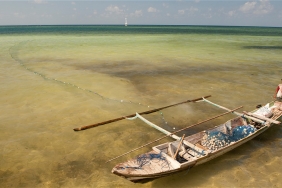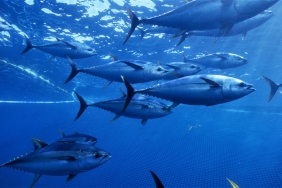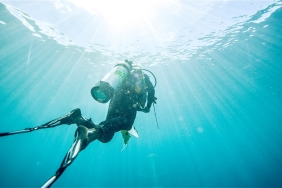JEEN WOMOM COASTAL PARK CONDUCTS SASI
The Jeen Womom Coastal Park located in Trambauw Regency, West Papua, is the largest nesting beach in the Western Pacific with an area of 32,250.86 Ha consisting of three large beach segments namely Jeen Yessa Beach 1 (±12 km), Jeen Yessa Beach 2 (±6 km) and Jeen Syuab Beach (±7 km). Since 2005, WWF-Indonesia has involved local communities to monitor leatherback turtle nesting activities until now. The goal is to protect the turtles and their habitat to remain sustainable.
In addition to sea turtles, there are also land animals that are hunted by the community, such as deer, wild boar, various types of birds, tree cuscus and others in the Jeen Womom Coastal Park area. The rampant hunting of wildlife carried out from outside the village without permission has caused a reduction in the catch of the customary rights owners, so the ban and various other notification efforts are carried out.
This sasi activity was the first time conducted in Wau Village and Jeen Syuab. The sasi agreed by the customary owners was carried out for 3 years. This sasi effort is also part of the community's support to the government that has reserved Tambrauw Regency as a Conservation Regency in accordance with PERDA Number 5/36 of 2018 which was declared in October 2018.
Some types of marine animals that are seized are sea cucumbers, shrimps, lola and moon-eye snails, while the land animals are deer. Other animal species that have been protected by Government Regulation are also informed during sasi activities, such as all types of sea turtles and their eggs, tree kangaroos, Lao-lao (wallabies), Kuskus, Cenderawasih, Mambruk birds, Maleo, Cassowary and Kum-kum birds (a type of Pergam). WWF-Indonesia always supports the local community by conducting awareness about marine and terrestrial animals, assisting protected turtle patrol personnel and will also provide signage of the boundaries of the sequestered area.





